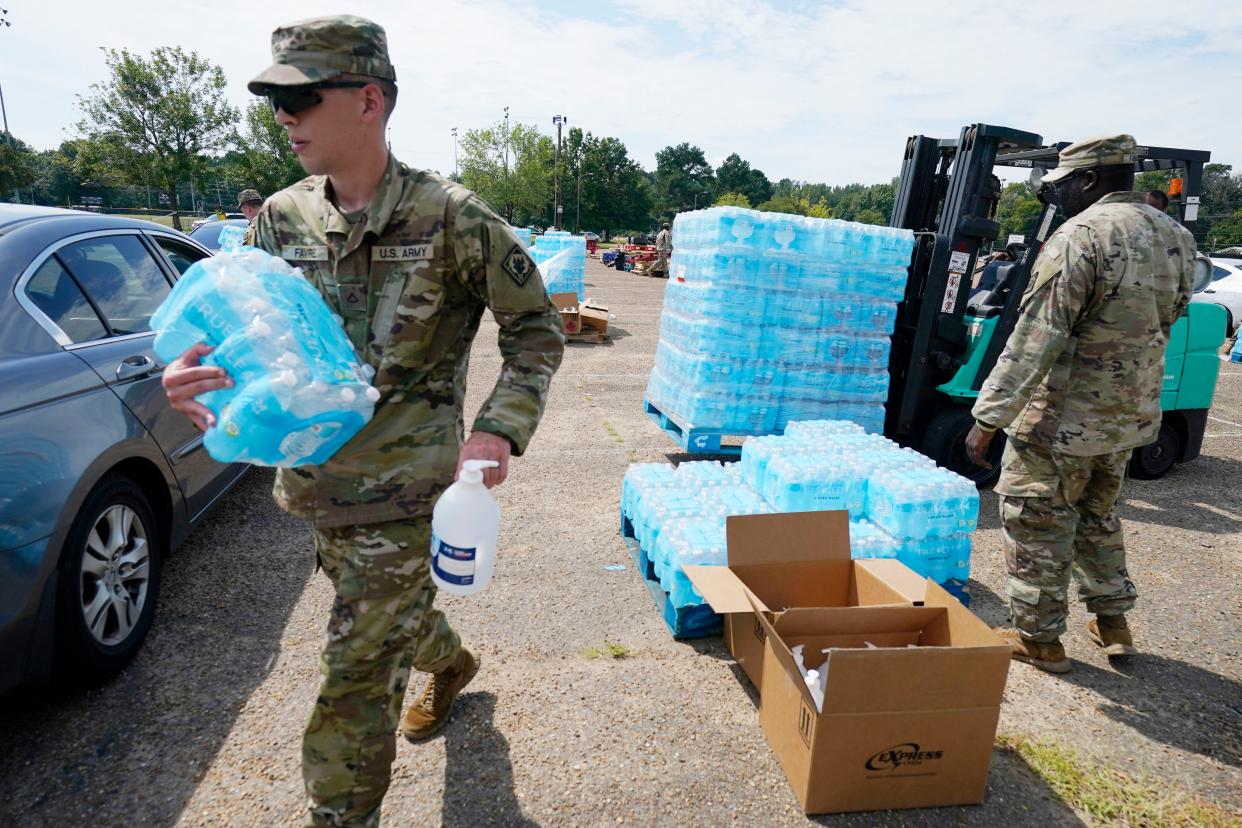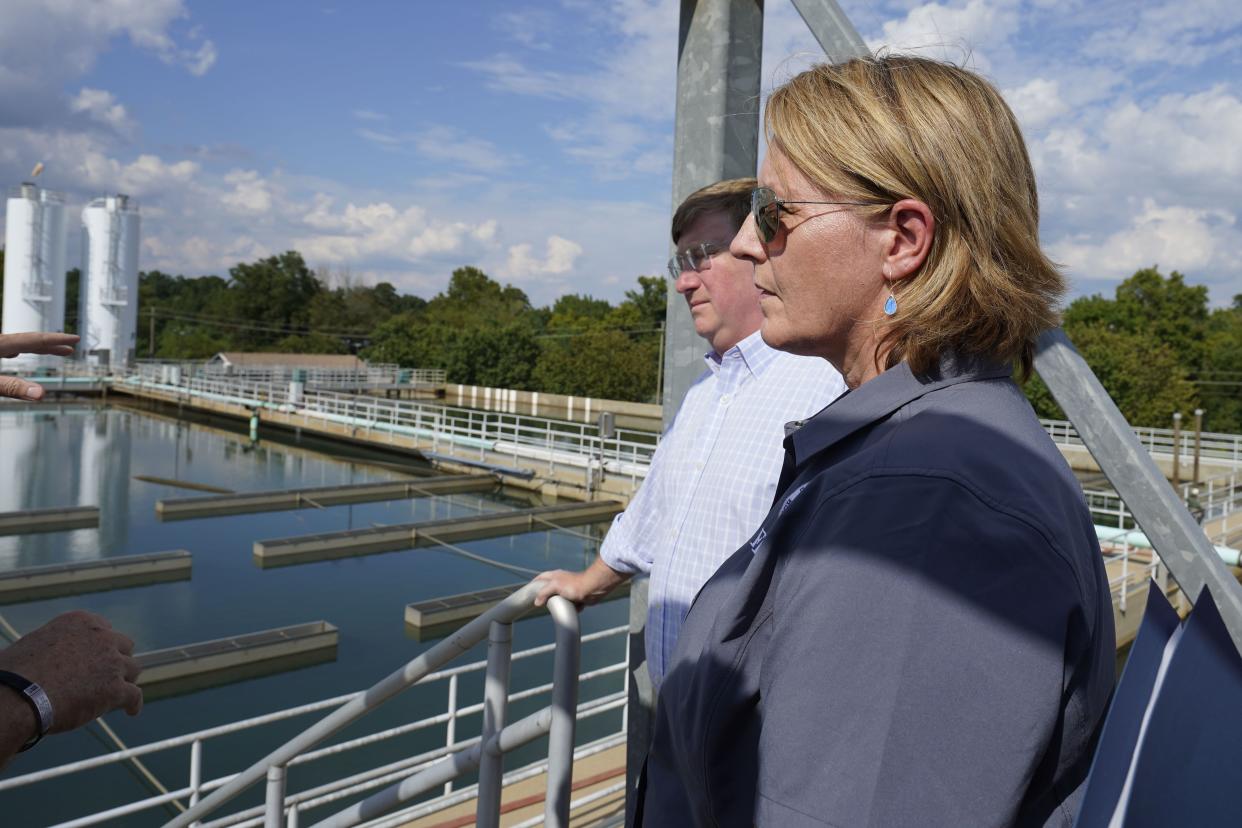No time line for fixing Jackson, Miss., water crisis: FEMA chief
There’s no telling when the water crisis in Jackson, Miss., will be over, the head of the Federal Emergency Management Agency said Sunday.
Heavy rains last month cut off access to safe drinking water in the city, which had already been under a boil-water order due to the poor quality of the H₂O.
“I think it’s still too early to tell,” FEMA Administrator Deanne Criswell said on CNN’s “State of the Union.”
“I think that having [the Environmental Protection Agency] and the Army Corps of Engineers — we had a really good conversation on Friday about what it’s going to take in the assessments that they’re doing.
“It’s going to happen in phases,” she continued. “The focus right now is making sure we can get bottled water out.”

Mississippi National Guardsmen carry cases of drinking water and a bottle of hand sanitizer to Jackson, Miss., residents, Friday, Sept. 2, 2022, at Smith Wills Stadium. (Rogelio V. Solis/)
Nearly 2.8 million bottles of water were distributed in Jackson over a roughly 24-hour span last week, according to Mississippi’s emergency agency.
A water treatment plant at the center of the crisis made “significant” improvements over the weekend, Jackson officials said.
“We’re providing temporary measures to help increase the water pressure so people can at least flush their toilets and use the faucets,” Criswell said Sunday.
Most water customers in the city of about 150,000 got water pressure back, according to local officials.

Deanne Criswell, administrator of the Federal Emergency Management Agency (FEMA), left, and Mississippi Gov. Tate Reeves look over the sedimentation basins during a visit to the City of Jackson's O.B. Curtis Water Treatment Facility in Ridgeland, Miss., Friday, Sept. 2, 2022. (Rogelio V. Solis/)
“The outlook is very stable,” the city said. “However, additional challenges as repairs and adjustments are made do leave the potential for fluctuations in progress.”
Jackson’s water system has been in crisis for years, with experts blaming lack of infrastructure investment and decades of population decline.
“It’s quite unnerving,” Jackson resident Shirley Harrington said last week. “It’s like playing Russian roulette. You don’t know if you’re going to wake up with water, don’t know if you got water, don’t know what condition the water is in. There’s so many statements: ‘Do not drink,’ ‘Do not use,’ ‘You can use, but don’t drink,’ so you’re like, ‘What do I really do?’ ”
With News Wire Services
